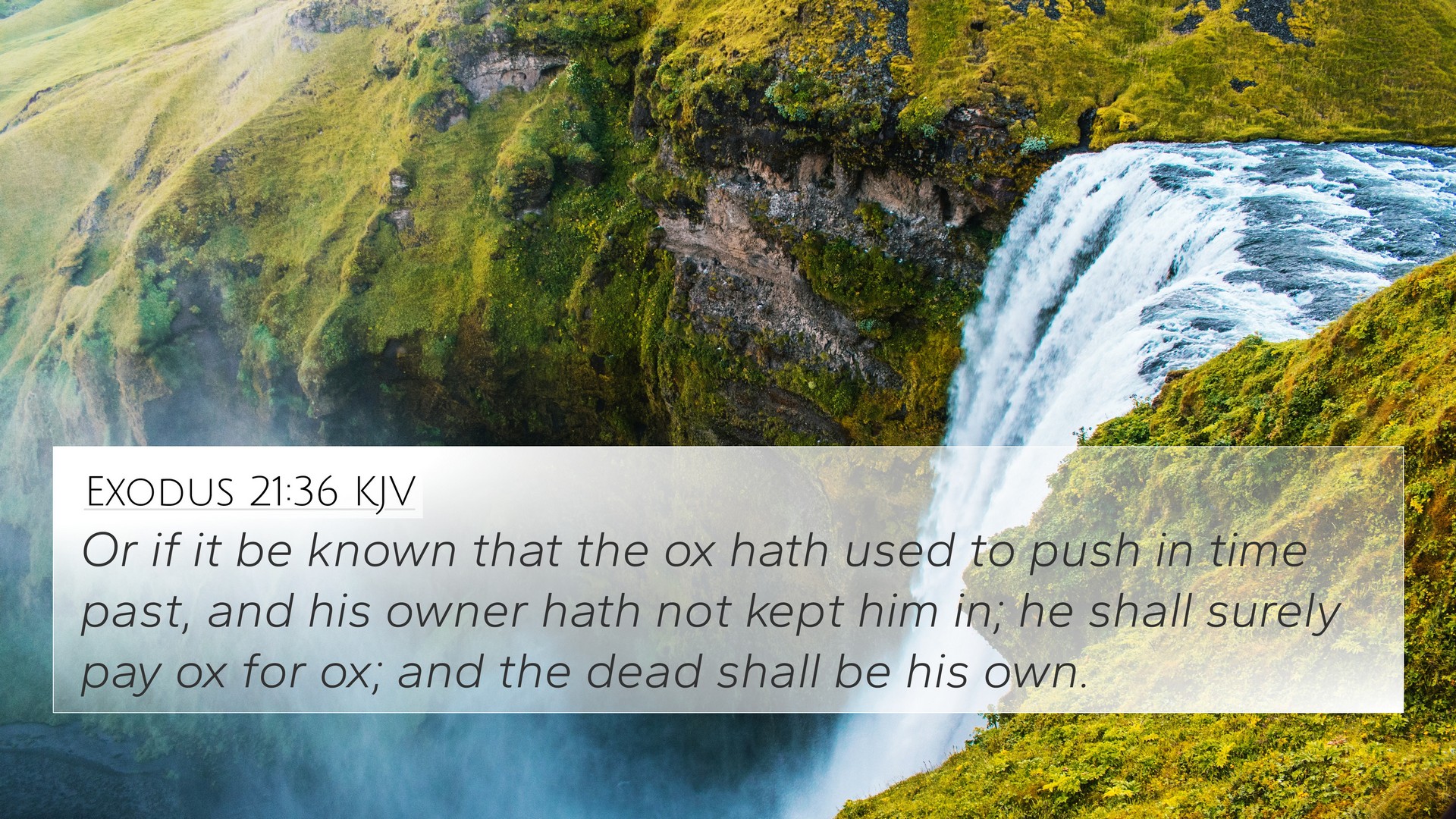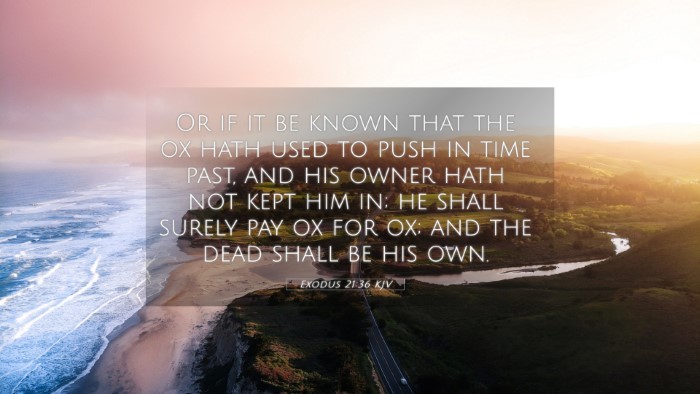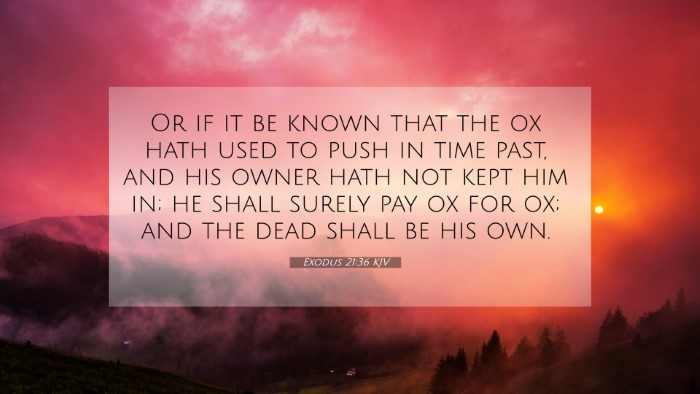Understanding Exodus 21:36
Exodus 21:36 states: "If an ox hurt a man or a woman, that they die: then the ox shall be surely stoned, and his owner also shall be put to death." This verse presents the principles of justice and responsibility in the context of personal property and harm caused by animals.
Summary of the Verse
This passage is part of the larger legal code provided to the Israelites and outlines the consequences of negligence. The principle here is not only about the punishment for the ox but emphasizes the owner's responsibility in ensuring that their animal does not harm others. This reflects the broader biblical theme of accountability and justice.
Insights from Commentaries
- Matthew Henry: Henry highlights that the owner's negligence can lead to severe consequences. He emphasizes that this law illustrates God's concern for human life and the weight of personal accountability. It shows a direct link between the actions of a man and the actions of his property.
- Albert Barnes: Barnes discusses the implications of the law about personal responsibility. He notes that this serves to enforce the notion that individuals must control their possessions and ensure they are safe. Failure to do so can result in severe penalties, hence the ox is stoned to ensure that the owner understands the serious nature of their oversight.
- Adam Clarke: Clarke adds a nuance regarding the severity of the punishment. If the ox was known to be vicious and the owner neglected to control it, the owner faced grave consequences. This reflects God’s justice, where negligence in safeguarding others leads to judgment, ensuring societal order and the safety of individuals.
Bible Verse Cross-References
Exodus 21:36 correlates with several key biblical principles and stories. Below are related scriptures for deeper understanding and thematic connections:
- Leviticus 24:21: Emphasizes the principle of retribution, linking the outcome to the nature of the harm done.
- Deuteronomy 22:1-4: Discusses responsibility to protect others' property and well-being, adding to the idea of accountability.
- Proverbs 12:10: Highlights the righteous care for their animals, signifying the moral responsibility bestowed upon owners.
- Matthew 5:25-26: Offers a New Testament reflection on settling disputes, echoing the principles of accountability.
- Luke 14:5: Jesus referenced the care for one's ox, showing the value of earthly possessions and responsibilities.
- James 4:17: Addresses knowing to do good and failing to do it, directly tying into the theme of personal responsibility.
- 1 Timothy 5:8: Teaches about providing for one’s household, echoing the same duty to care for both people and property.
Connections Between Bible Verses
The connections between Exodus 21:36 and the cross-referenced verses transcend mere legal implications; they provide a foundation for understanding themes like:
- Justice: The concept of retributive justice across both Old and New Testaments demonstrates a consistent theme of accountability to God’s laws.
- Personal Responsibility: The biblical mandate for individuals to safeguard those in their care reflects a deep moral calling in all aspects of life.
- Care for Creation: Both the treatment of animals and neighbors underline the divine expectation of stewardship in the broader context of the created order.
Comparative Bible Verse Analysis
Understanding Exodus 21:36 requires thoughtful engagement with related passages. This comparative analysis invites deeper reflection on the sobering consequences of negligence and a reminder of our responsibilities to others. By systematically approaching these ancient texts through the lens of cross-referencing, we unlock a richer theological narrative.
How to Use Bible Cross-References
Engaging with the Bible effectively includes utilizing tools for cross-referencing to deepen one's understanding of scriptural themes:
- Bible Concordance: Helps locate themes and terms that appear throughout Scripture, enhancing study.
- Bible Cross-Reference Guide: Aids in identifying thematic relationships across different books of the Bible.
- Cross-Reference Bible Study: Encourages examining related verses for a holistic understanding.
- Inter-Biblical Dialogue: Facilitates a conversation between passages, drawing connections that illuminate the nature of God's justice and grace.
Conclusion
Exodus 21:36 serves as a powerful reminder of the interplay between our actions, ownership, and divine expectation. By examining this verse alongside its cross-references, we cultivate a deeper appreciation for the biblical narrative that emphasizes justice, responsibility, and the protection of life.


